Frustrated Neighbors Claim North Smithfield Quarry Allowed to Disregard Rules
They allege lack of oversight has allowed mining operation to expand
December 16, 2022
NORTH SMITHFIELD, R.I. — A quarry operating at the edge of a residential neighborhood has some residents concerned, but not entirely by the blasting, the prolific truck traffic, the constant rumbling of heavy machinery, or the silica dust left blowing in the wind. They’re frustrated that local and state officials, they believe, have allowed the business to operate outside the rules.
Jason Richer and Rebecca Decristofaro allege the town isn’t enforcing the regulations that govern businesses conducting earth removal. They believe local officials are more concerned about being sued by the quarry’s operator, Material Corporation, than they are about public well-being. The company has brought the town to court in the past.
Richer said it feels like the health and safety of the neighborhood is being disregarded, as concerned residents are left to prove, for example, that dust on their cars, back porches, and homes is coming from the quarry. Isn’t that why we have the Rhode Island Department of Environmental Management (DEM), the Environmental Protection Agency, and the Occupational Safety and Health Administration, he asked.
Silica dust, created by the crushing and/or cutting of materials such as stone and rock, is a Group 1 carcinogen. Prolonged exposure to crystalline silica can lead to the lung disease silicosis and to other lung ailments, including lung cancer, according to the Centers for Disease Control and Prevention.
“It seems like the town has been protecting them for whatever reason; we’re not entirely sure because we kind of get stonewalled every turn we take,” Decristofaro said. “So I have concerns … nobody wants to listen to us.”
Richer and Decristofaro have conducted plenty of research to back up their lack of enforcement claim. Earlier this month ecoRI News met with the two residents at Decristofaro’s home, which abuts Material Corporation’s quarry. They spoke to this reporter for three hours, backing up many of their claims with a stack of paperwork and videos shot by Richer.
Richer said a video he shot inside Decristofaro’s home on Sept. 19 shows how loud and strong — he said some household items appear to shake — the quarry’s operations can be. The house is about 1,400 feet from the edge of the quarry.
Material Corporation’s quarry at 1 Pine Hill Road supplies a processing plant at 618 Greenville Road, the company’s headquarters, that produces sand, stone, cement, and asphalt.
The quarry is in an area zoned rural estate agriculture (the quarry is located in the bottom portion of the area shaded green on the map’s left). Richer noted quarrying is no longer allowed in any zone, even with a special-use permit. The only earth-moving operations allowed in town are unsold, pre-existing, nonconforming operations that have been grandfathered in, according to local regulations.
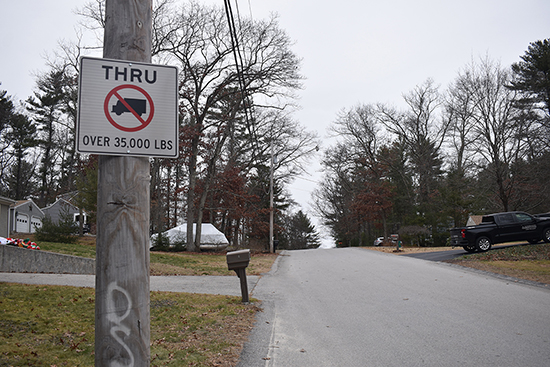
In the 1960s, North Smithfield passed mining regulations that required an appearance before the Zoning Board of Review to obtain a special exemption. Site and restoration plans were also required to be filed with the town. A bond also must be paid to ensure land restoration, and the company’s license to operate must be renewed every year, with annual inspections of the property by a town zoning official required.
A special-use road permit was also required for trucks weighing more than 35,000 pounds, and signs posted on both Pine Hill Road and Pound Hill Road not far from the quarry’s entrance/exit note trucks weighing more than that are prohibited.
By the end of the ’70s, the town banned any new earth-removal operations. Town regulations do make exemptions for pre-existing, nonconforming uses, but they also note the exemption for mining operations no longer applies once a property is sold.
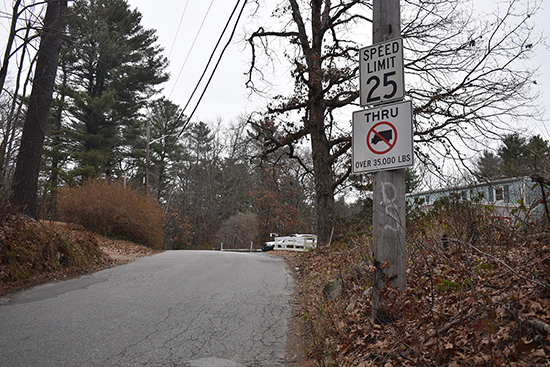
“It is the intent of this ordinance to permit these nonconformities to continue until they are removed, but not to encourage their survival,” according to town regulations governing nonconforming lots and land use. “It is further the intent of this ordinance that nonconformities shall not be enlarged upon, expanded or extended.”
Through Access to Public Records Act (APRA) requests, Richer obtained a scant amount of information, such as some old site plans and past receipts for some surety bonds, related to Material Corporation’s 89-acre facility off Pine Hill Road, operating under the name Material Sand & Stone since 1985. Many of the documents the town should have on file don’t exist or are missing, he said, such as annual quarry inspections and road permits.
According to town records, the property — Plat 7, Lots 4 & 38 — was bought in 2013 by Pound Hill Realty LLC from Leonard and Constance Pezza for nearly $1.3 million.
The business remains in the Pezza family, “to excavate, wash, screen, sell, and deal in gravel and sand, and to engage in the manufacture, distribution and sale of sand and crushed stone products.” Robert Pezza is listed as president and Michael Pezza as vice president, according to articles of incorporation filed with the secretary of state’s office.
Richer has filed complaints with the town regarding Material Corporation’s ongoing operation, claiming the business has been operating without the required permits for nearly a decade. He also alleges there are several zoning violations at the 1 Pine Hill Road quarry, including mining taking place within the 200-foot buffer of the property line, failure to keep manufactured unwashed sand wet to keep fugitive dust from traveling beyond the property, a lack of fencing, and an unauthorized fuel storage tank on the property. (He has flown a drone over the quarry on occasion.)
A video he shot Dec. 2 shows the quarry operating without any water being sprayed to wet down fugitive dust, according to Richer. Trucks leaving the quarry with pulverized materials are required to be covered, but a few Richer videos, including one from Oct. 25, show trucks turning onto Douglas Pike with uncovered loads.
“Material Corp has a fuel storage tank on the property. I have heard them reference it on a few occasions,” Richer wrote in a Nov. 18 email to ecoRI News. He monitors the quarry’s communications via a scanner. “Yesterday an equipment operator was asking another to fill his 2 fuel containers from the tank and bring it to him as he was out of fuel. … State records indicate that they do not have a permit for an above ground tank nor an underground tank.”
Richer’s attempts to get answers to his concerns have been somewhat limited. Through his APRA requests, he discovered the town has no current or old license-to-operate permits for the quarry on file.
In a note to the town clerk on a Richer APRA request, building and zoning official Larry Enright wrote, “I did not find any of these types of documents in my office,” noting he also couldn’t find documentation of the required annual site inspections.
The finance director told the town clerk in an email, “we do not have any bonds for these plats/lots.” The assistant planning director noted the Planning Department doesn’t have site plans, restoration plans, or surety bonds on file for the Pezza property.
In mid-August, the Zoning Board of Review chair told NRI NOW that to his knowledge the board “has not been presented with any such applications requesting relief for ‘earth removal operations.’”
Enforcement of local and state building codes and compliance with town zoning laws falls under the attention of the head of the town’s Building Department, a job Enright took over in April following the retirement of Kerry Anderson.
Documents Richer obtained through his APRA requests show the town’s quarrying regulations were once enforced — after which, lawsuits were filed.
Former town building and zoning official Robert Benoit issued a cease-and-desist letter to Leonard Pezza in April 1990, after the latter bought a 32-acre property — Plat 7, Lot 38 — to merge with the company’s existing operation on Plat 7, Lot 4.
“[T]he property that you purchased in November of 1987 does not enjoy the same privilege as the pre-existing use that you have,” wrote Benoit, instructing Pezza to submit a plan for activities on the 32-acre lot and obtain the permit required for trucks weighing more than 35,000 pounds.
A May 1990 cease-and-desist letter from the town solicitor noted the Pezzas must have a survey done to establish boundaries between the two parcels, as mining on the smaller lot is illegal without special-use permitting.
A 1992 letter from Benoit addressed an application from the Pezzas to remove 450,000 cubic yards of material from Plat 7, Lot 38, citing the regulations that require the owner of the parcel to go before the Zoning Board of Review.
The town was told two years earlier that the excavation was needed to build a farm — in the shadow of a mining operation. A letter of intent from Leonard Pezza to the town noted it would take four years to remove the 450,000 cubic yards of material. After that, “I intend to grade it to the proper specifications and utilize it as a horsefarm.”
“We are presently excavating on property that I previously owned,” Pezza wrote in another letter to the town, dated May 2, 1990. “The land that abuts my property was purchased approximately three years ago and is not where the excavation is taking place. On this new property, I intend to take an approximate eleven acre area and strip the topsoil, remove stumps, regrade area, replace topsoil, and use this area for grazing horses.”
Through his APRA requests, Richer obtained a copy of the farm plan, which included a proposed riding facility, a barn, stables, and a corral.
Richer alleges that in the decades since the family’s excavation request to build the farm, the 32-acre lot has been slowly but significantly mined without the proper authority. He also said the number of heavy-duty trucks using Pine Hill Road and Pound Hill Road to enter and exit Douglas Pike exceeds both the roads’ weight limits and the number of truck trips allowed.
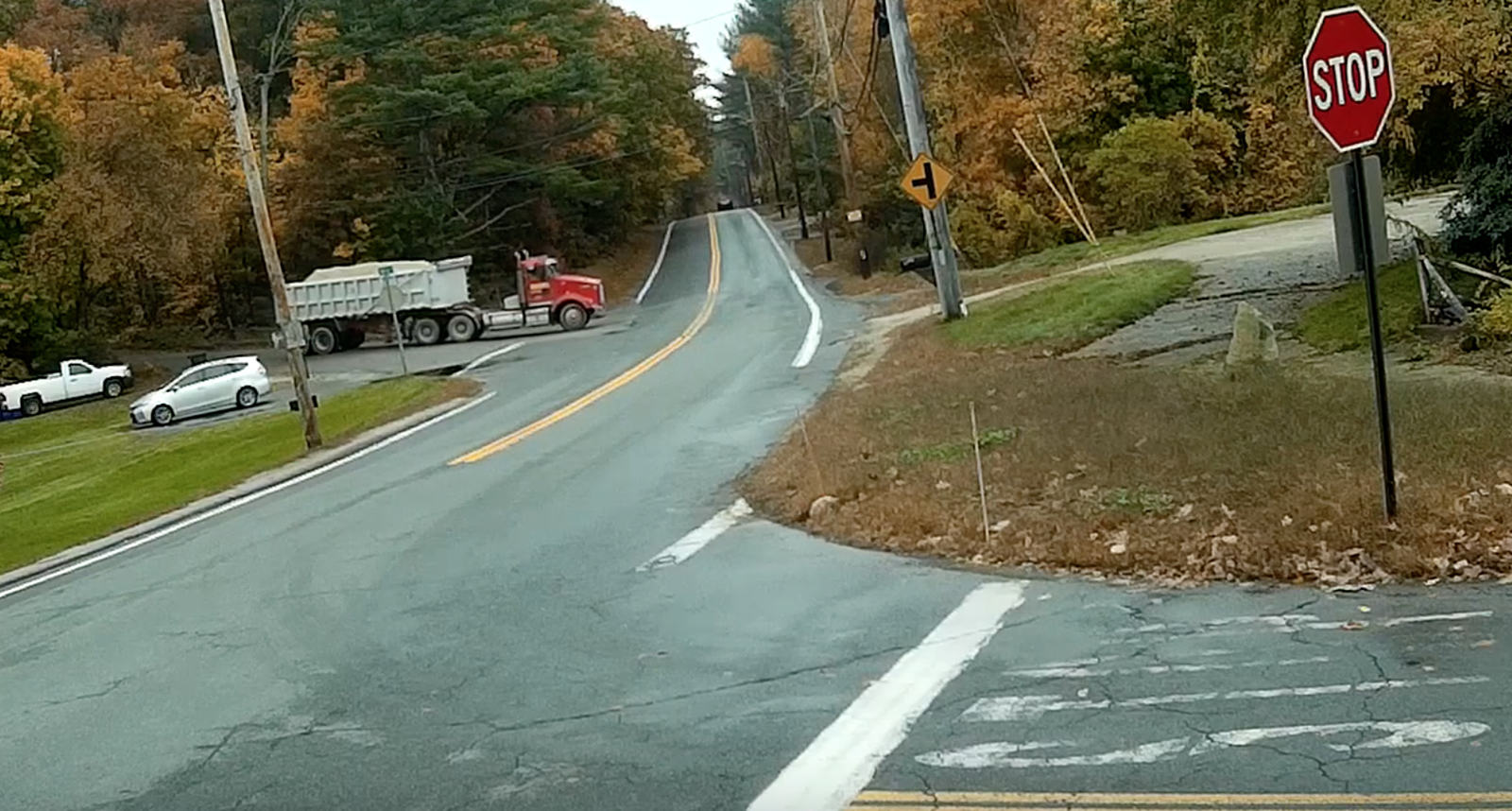
Richer lives across the street from where Pound Hill Road meets Douglas Pike (Route 7). He has videoed and counted the number of trucks coming and going. He said he has counted as many as 80 to 100 trucks turning onto Pound Hill Road, quadrupling the number of truck trips the quarry is supposedly allowed. The quarry operation is limited to 20 trucks coming and going for a total of 40 trips, according to Benoit correspondences and town regulations. (To Douglas Pike from the quarry at the end of Pine Hill Road is 0.7 miles.)
In a video Richer shot Monday, Oct. 17, from 7-8 a.m., 33 trucks that look to be conducting quarry business, including those seen coming and going, enter and exit Pound Hill Road.
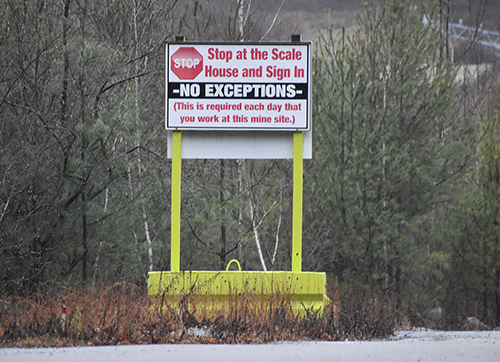
Material Corporation’s use of Pound Hill Road and Pine Hill Road for large trucks to and from the quarry became the subject of a 2001 lawsuit, with a Rhode Island Superior Court judge eventually ruling the company could use the two residential roads to enter and exit the property. The decision came with restrictions, which Richer has alleged have not been enforced.
Richer brought his concerns to the Town Council at its July meeting, and a few weeks later met with Enright and town administrator Paul Zwolenski to discuss the matter.
Earlier this year he filed two complaints with the zoning enforcement officer (Enright). Both the June 15 complaint and the Sept. 2 compliant claim the 32-acre lot bought 35 years ago is being mined without a license.
“The owner, Pound Hill Realty has never applied for or received a Certificate of Zoning Compliance to do Earth Removal Operations on the 32 acre parcel of plat 7, lot 38 that was purchased on Nov 11, 1987,” Richer wrote in the September complaint. “These 32 acres do not enjoy the same nonconforming status as the rest of Plat 7 Lot 38. From 2013 to present, the 32 prohibited acres have been and are being mined, blasted and quarried in violation of Article IV Soil and Earth Removal Operations.”
Town regulations say Article IV of Chapter 11 — enacted June 18, 1979 — “shall not apply to earth removal being conducted on the date of its enactment.” The article, however, also says — subsection (f) on page 19 — that, “Upon the sale of any real property being used for earth removal activities, the nonconforming status of this section shall no longer be considered in effect and any subsequent earth removal activities must be licensed and conform to the regulations of this article.”
As a condition precedent to any earth removal, a license shall be required to be issued by the Town Council following a public hearing, according to subsection (a) on page 18. This “license shall be issued only to the owner of record and shall not be transferable. Should an existing earth removal operation be sold, such operation shall no longer be considered nonconforming and must obtain a license as set forth under section 11-41, herein. This license shall expire at the end of one year and must be renewed annually.”
Richer’s June complaint also claimed Material Corporation hasn’t applied for special-use road permits for trucks weighing more than 35,000 pounds.
In his Sept. 15 response to Richer’s complaints, Enright wrote, “These issues have been settled by court orders.” When it came to the 32-acre parcel bought by the Pezza family in the mid-1980s, he noted a Rhode Island Superior Court ruling on Nov. 6, 2006 — which he attached to his response — ordered the status quo to remain in effect and restrained the town from scheduling a zoning hearing.
His response, however, fails to mention the 2013 sale of the operation, from one Pezza generation to another.
“This property has been in operation as an earth removal location since the 1950’s and has been owned by the Pezza family and it’s corporations since,” Enright wrote. “This article shall not apply.”
The zoning official also noted the courts, in a Nov. 21, 2001 ruling, permitted the Pezza family business to use Pine Hill Road and Pound Hill Road. Bonds have been obtained each year, according to Enright. In his response, he attached a bond dated July 19, 2018. His response didn’t make any mention of the special permit required for trucks weighing more than 35,000 pounds.
“No trucks or other commercial vehicles heavier than 35,000 pounds gross weight, including their loads, shall be allowed on the following town roads without first obtaining a special permit from the town administrator; Black Plain Road, Pound Hill Road, Follett Street, Woonsocket Hill Road, Buxton Street, Charon Drive, Mendon Road, Rhodes Avenue to Woonsocket city line, Harkness Road (west), Connector Road, Old Great Road, Pine Hill Road and Tifft Road,” according to town ordinances (page 6).
The ordinance also notes the application for a special road-use permit needs to be accompanied by a plan showing the proposed route of travel over the streets and roads sought for exemption, type of vehicle to be utilized indicating their gross weight and type of cargo to be carried, and frequency of use on a daily basis to include hours of operation and days utilized.
“Days of the week and times were set, and permission made for avoidance of school buses,” wrote Enright, claiming there is no restriction on the number of trucks that can come and go from the Pine Hill Road quarry. “Since that time the parties have acquiesced to the term of that order and acted in good faith in accordance with the Court Order.”
Richer believes otherwise, claiming he has witnessed, for instance, quarry trucks traveling during the neighborhood’s set school bus times.
Quarry trucks are prohibited for a period of 5 minutes before and 5 minutes after the scheduled pick-up or drop-off times of school buses on Pound Hill Road and Pine Hill Road, according to the 2001 Superior Court ruling.
The two-decade-old ruling doesn’t, however, give Material Corporation nor the town permission to ignore local ordinances — it merely states the company can use the two neighborhood roads.
Richer provided a letter from Benoit to Leonard and Constance Pezza dated Sept. 15, 1994, that noted 20 truck trips are the permitted amount.
“If you require more than 20 loads per day, you will need to seek approval from the Town Council; otherwise, you will need to comply with the current set number of 20 which was granted at the Town Council Meeting of February 19, 1991,” Benoit wrote.
In another Benoit letter, dated June 14, 1990, to the town administrator, he wrote, “Mr. Pezza does not have a road permit at this time.”
Richer’s request to see road-use permits turned up nothing, except a May 3 email from the town clerk that said, “The trucking permits on roads does not have any documents … There are no documents to distribute.”
A video Richer shot on May 18 shows the driver of a red pickup getting out and removing the no-trucks-over-35,000-pounds sign at the entrance to Pound Hill Road.
In the Aug. 15 story published by NRI NOW, Zwolenski, the current town administrator, said Richer appeared to have done extensive research, and that town officials are in the process of looking at all of the documentation. He said Enright also had plans to begin looking further at the matter.
“I want to take a look at all of these things,” Zwolenski told the news website. “I’m certainly not just going to put a company out of business that provides jobs.”
ecoRI News was unable to connect with Zwolenski and Enright didn’t respond to two requests for comment.
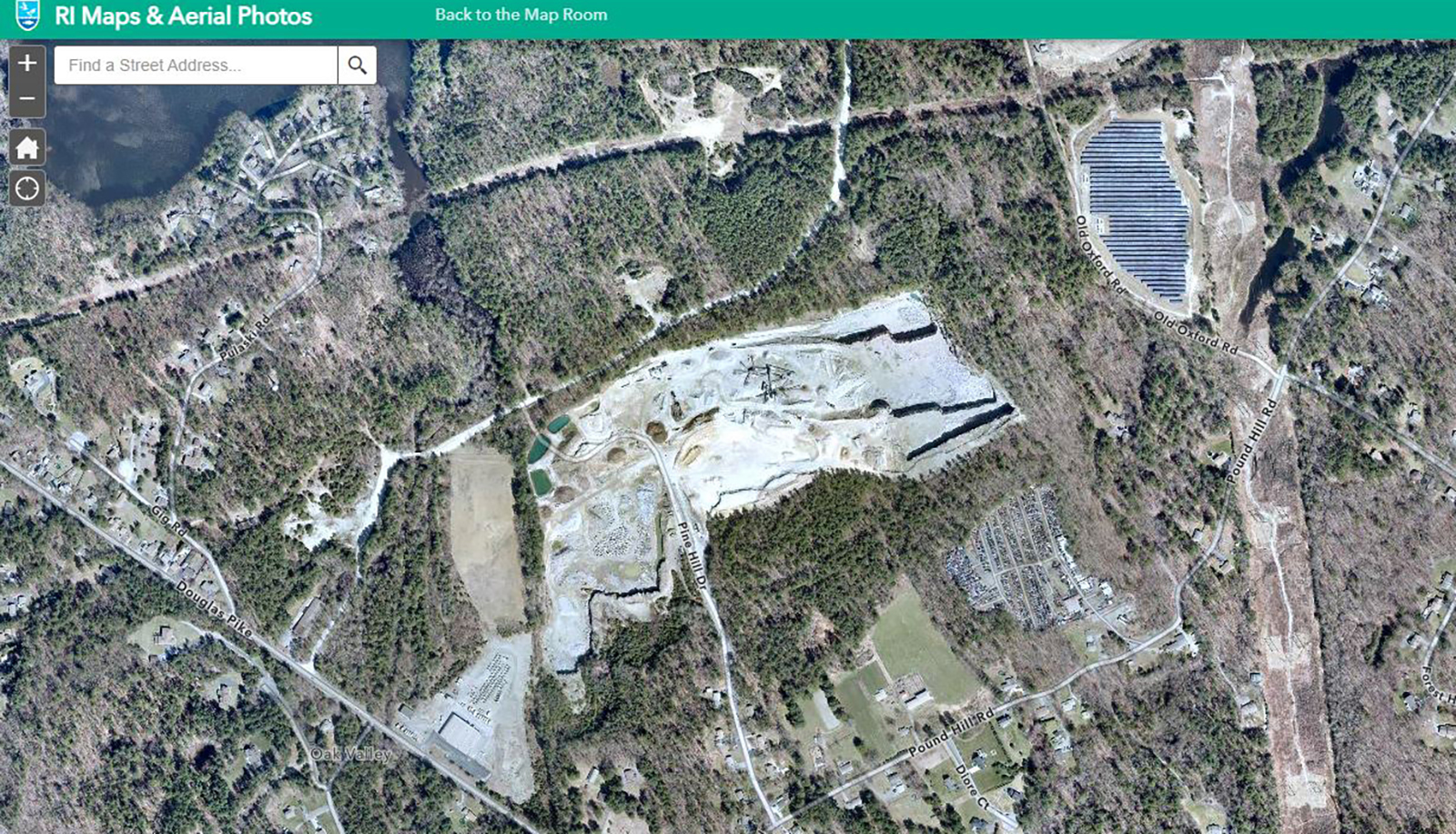
Richer also filed a complaint with DEM regarding fugitive dust leaving the property. He has shared with the state agency some of the videos (here, here, here, and here) he has taken showing quarry dust being blown around.
In a Nov. 16 email to Richer, a staffer from DEM’s Office of Compliance and Inspection told him the agency conducted an inspection of the site a week earlier.
“No fugitive dust was observed leaving the property boundaries during inspection,” she wrote. “During the inspection, water trucks were observed on site, and the DEM inspectors reminded the facility representative to continue to water down the site. The representative agreed to comply. The complaint is unfounded and no further action will be taken at this time.
“Please note that in order take any action related to an alleged violation, the violation must be observed and documented by DEM inspectors. Please contact us if you continue to experience dust related issues, which will be investigated as time and resources allow, and conditions warrant.”
In a Freedom of Information Act request to DEM dated Nov. 29, Richer asked copies of all notes taken during the Nov. 9 inspection, any sketches of the quarry, the locations of stockpiled sand and crushed stone, any pictures and/or video taken that day, and measurements of the moisture content of the stone dust piles, sand piles, and pulverized quartz piles.
As of publishing of this story, Richer hadn’t received the requested information.
DEM hasn’t received any other dust complaints in this area, according to a Dec. 9 email sent to Richer by the same staffer.
Rhode Island law requires extractive industries within 1,500 feet of a home to stockpile manufactured, unwashed sand in a manner that prevents fugitive dust from traveling outside the property by use of water sprays. In determining compliance with the law, the DEM director may consider one or more of the following factors: moisture content of the stone dust piles; atmospheric humidity; wind direction and speed; rainfall; observations of fugitive dust; and location of the piles.
The director may also approve the use of alternatives to water spray, if water is not available or its use is not practical, including crusting agents or enclosures.
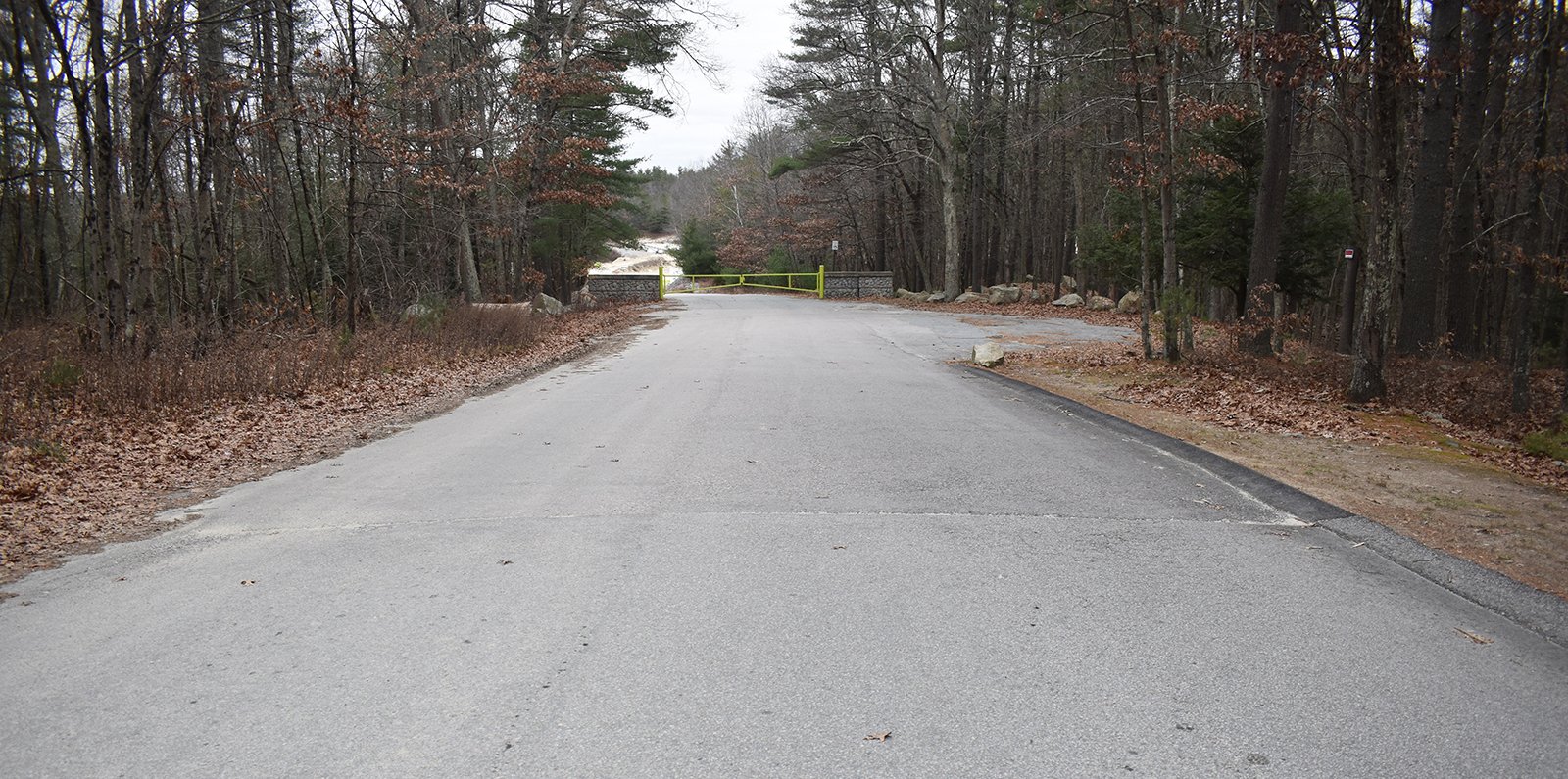
On the rainy Wednesday morning in early December before ecoRI News met with Richer and Decristofaro, this reporter drove to the end of Pine Hill Road to see the entrance/exit to the quarry. A few minutes after taking several photos from the road, a small red truck pulled up. (Material Corporation’s headquarters on Greenville Road is 3 miles away.)
I walked over to the driver’s-side window and handed the occupant a business card. A man who claimed he was the property owner got out of the vehicle, took photos with his phone of myself and my car, and accused me of trespassing.
I told him I didn’t come close to the gate or step on the company’s property, which is marked with several “Private Property No Trespassing” signs. He told me I did, walking me several feet up the road to show me a line on the road separating old pavement from newer pavement. He claimed this line showed I was trespassing on quarry property; however, there are no signs posted on either side of the road indicating the end tip of Pine Hill Road is private property.
I told him I was a reporter who would soon be meeting with local residents concerned about quarry activities and asked, several times, if he wanted to speak with me so I could get the company’s side of the story.
“They’re trying to shut me down,” he yelled. “You want to tell 75 people they no longer have jobs?”
He told me “to get the [expletive] off” the property. As I was leaving, he was speaking on his phone and I said, twice, I would wait if the police were coming. He didn’t answer me, telling the person he was speaking with that “he’s leaving now.”
Two follow-up emails sent to Material Corporation didn’t solicit a response.
“I just want them to follow the law,” abutter Decristofaro said. “I just want them to abide by the law.”

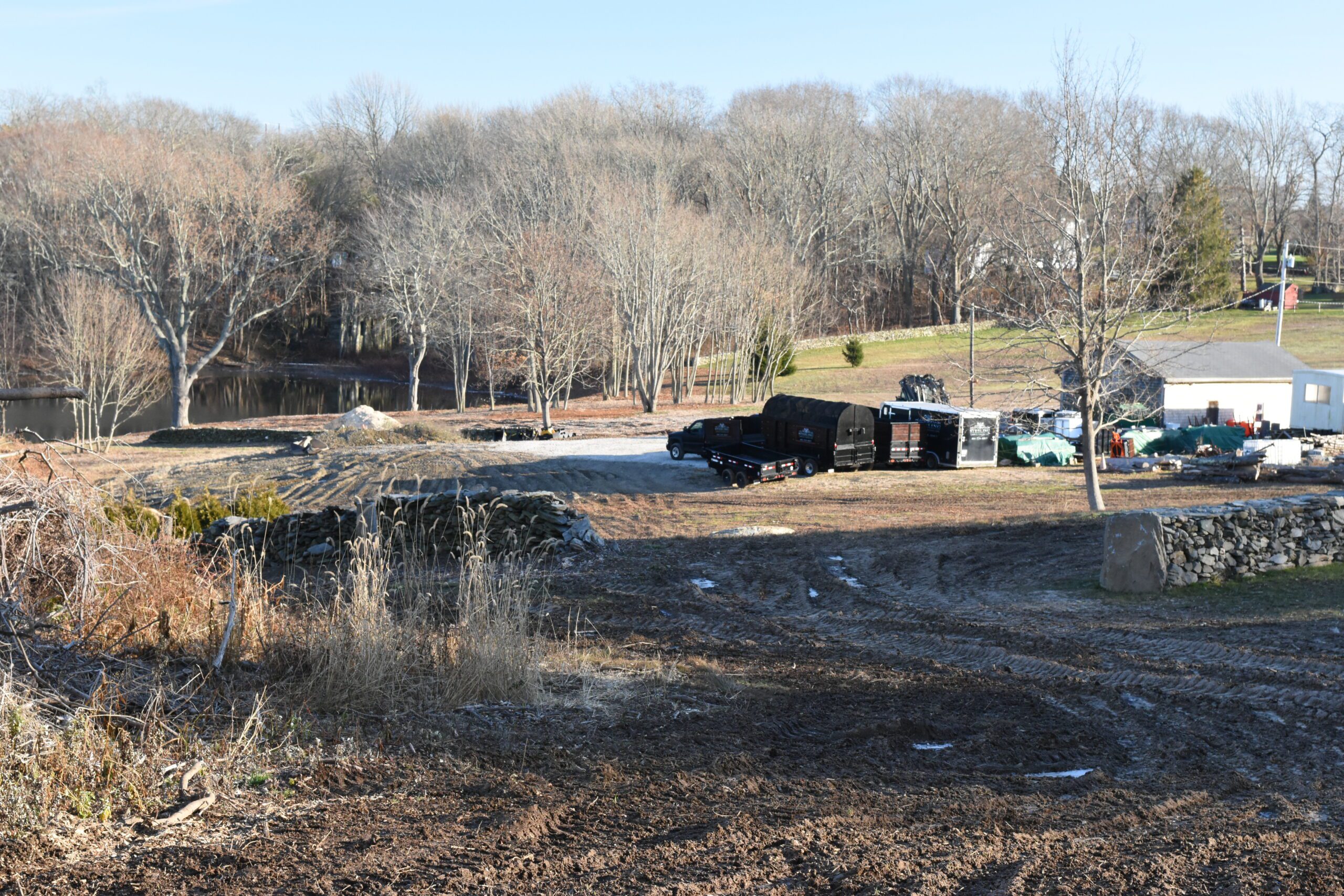
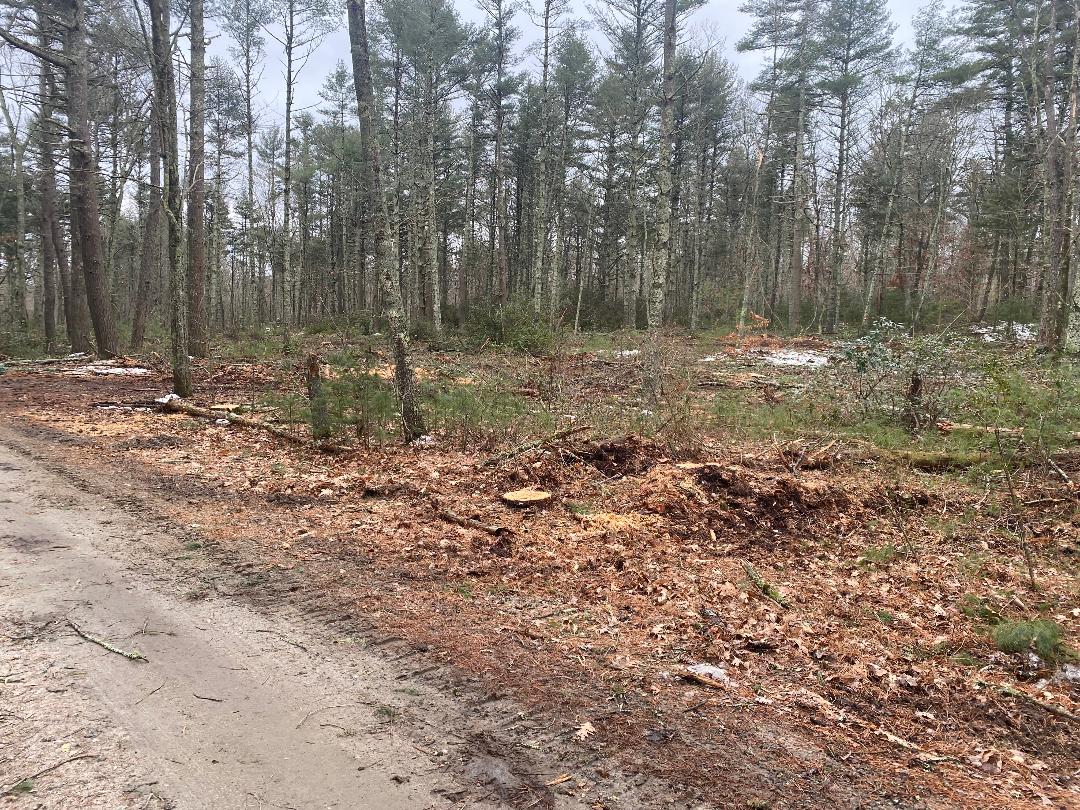
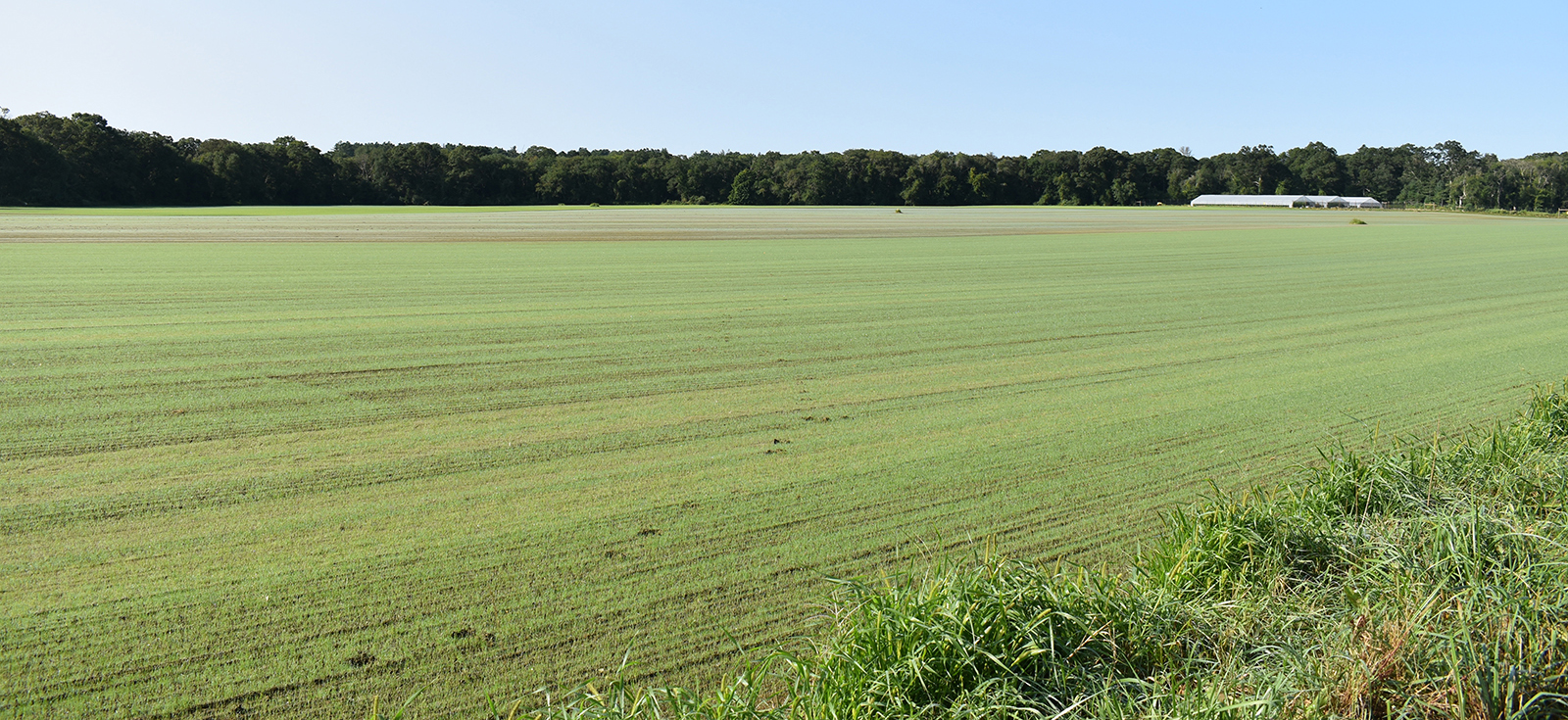
Nice article. You can not trust RI DEM the department is a big group of the old boy network. Most DEM inspectors come in around 9 do some paperwork until 10:00 then go out on site visits and are usually home by 1:00pm. About 15 years ago I tracked one DEM inspector on and off for 3 months and he followed this work schedule consistently. I think the only way results may happen is you sue the town for negligence of duty to enforce town ordinances.
Why have anyone contacted msha. He hey are above city ordanaces. Msha is mining safety health administration. Kinda like osha
The only downside to living where I live in town is the constant droning sound emanating from the quarry that carries clearly across the reservoir. Some mornings the sound is so loud against my bedroom window that it wakes me up starting at 7am. Thankfully, my brain mostly manages to tune the sound out as I get on with the day. But yeah…as a nearby resident I wish this place wasn’t in operation. Sunday is my favorite day because I don’t hear the droning.
So nice to see this ruling and be exonerated. The previous building and zoning inspector had stated to me in writing “that this was all a settled matter in court years ago” and I was told the operation was not illegal when in fact, it did not even have a Certificate of Compliance (which didn’t stop the electrical inspector from issuing an electrical permit).
https://nrinow.news/2023/12/15/court-sides-with-town-in-30-year-dispute-over-mining-earth-removal-in-north-smithfield/